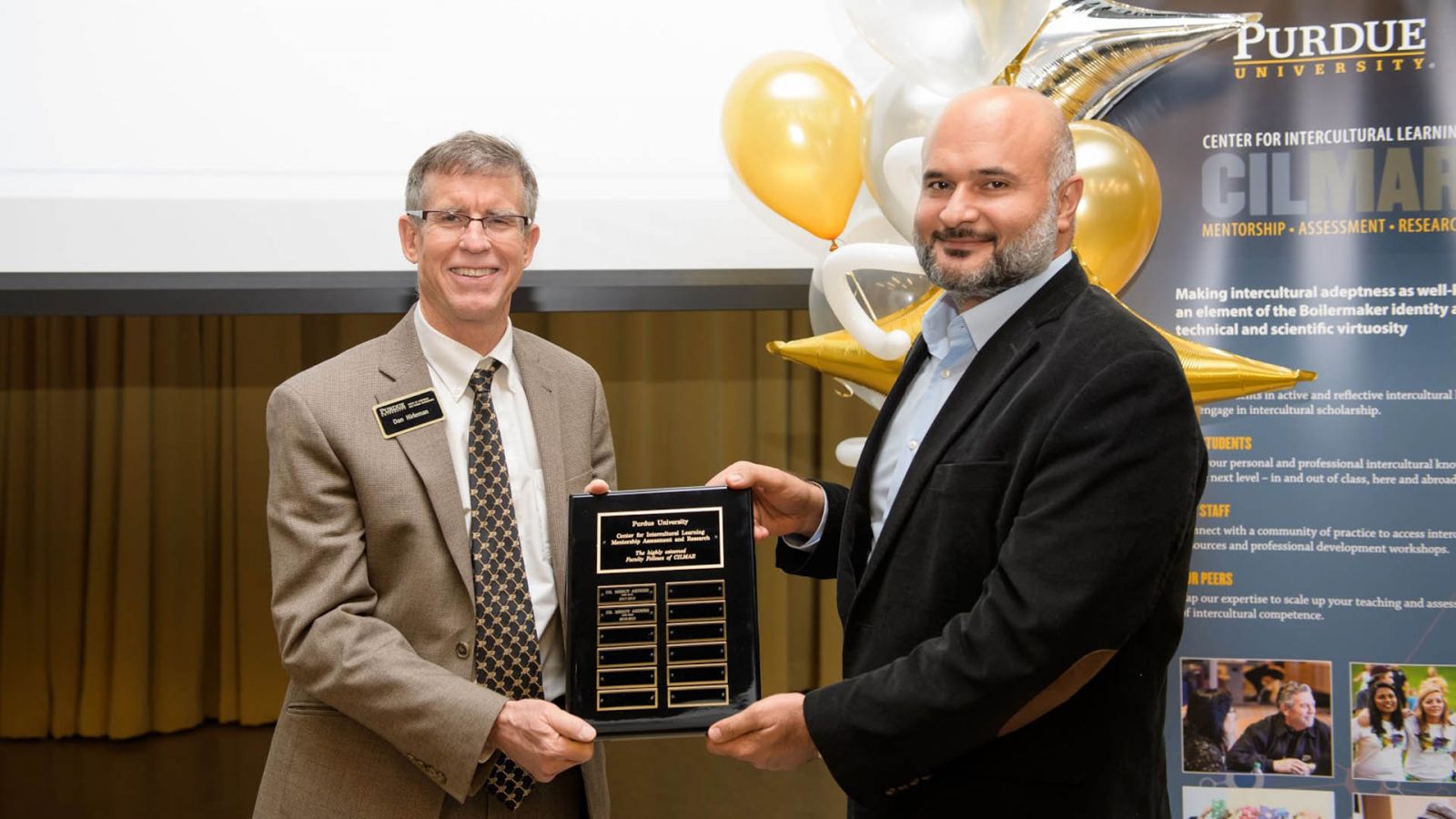
Mesut Akdere, associate professor in the Department of Technology Leadership & Innovation and the director of Purdue Human Resource Development (HRD) Virtual Lab, has received the Faculty Research Fellowship award of the Center for Intercultural Learning, Mentorship, Assessment and Research (CILMAR). The award recognizes Purdue faculty who demonstrate a commitment to intercultural research, teaching and learning.
During his fellowship, Akdere will conduct an experimental research study on developing intercultural leadership competency through virtual reality (VR) in STEM fields. As part of his study, he will use pre- and post-testing, qualitative self-reflection analysis and biometric data to study the augmentation of human cognition in the context of intercultural leadership competency.
“While there is an emerging research on the utilization and effectiveness of VR educational settings, rarely have researchers examined the use of VR for intercultural leadership development,” explained Akdere. “My research will compare the effectiveness of the VR to video-based training in developing intercultural leadership competency by utilizing biometric and traditional data to further advance training practices while providing new insights into theoretical underpinnings associated with STEM education.
“While there is an emerging research on the utilization and effectiveness of VR educational settings, rarely have researchers examined the use of VR for intercultural leadership development,” explained Akdere. His research will compare the effectiveness of the VR to video-based training in developing intercultural leadership competency by utilizing biometric and traditional data to further advance training practices while providing new insights into theoretical underpinnings associated with STEM education.
“If VR proves to be an effective learning tool, educators and organizations will be able to shift their focus from traditional learning tools, with their logistical and cost constraints, to more effective immersive technologies such as VR to meet the increasing societal demands around developing social skills to effectively communicate and interact as a global community,” Akdere said. “Intercultural leadership competency is a significant challenge for U.S. companies, which spent more than $160 billion in 2015 on employee training and education. Furthermore, as organizations become increasingly collaborative and multidisciplinary, these skills are critical for social interaction in the workplace to facilitate effective utilization of tacit knowledge.”
